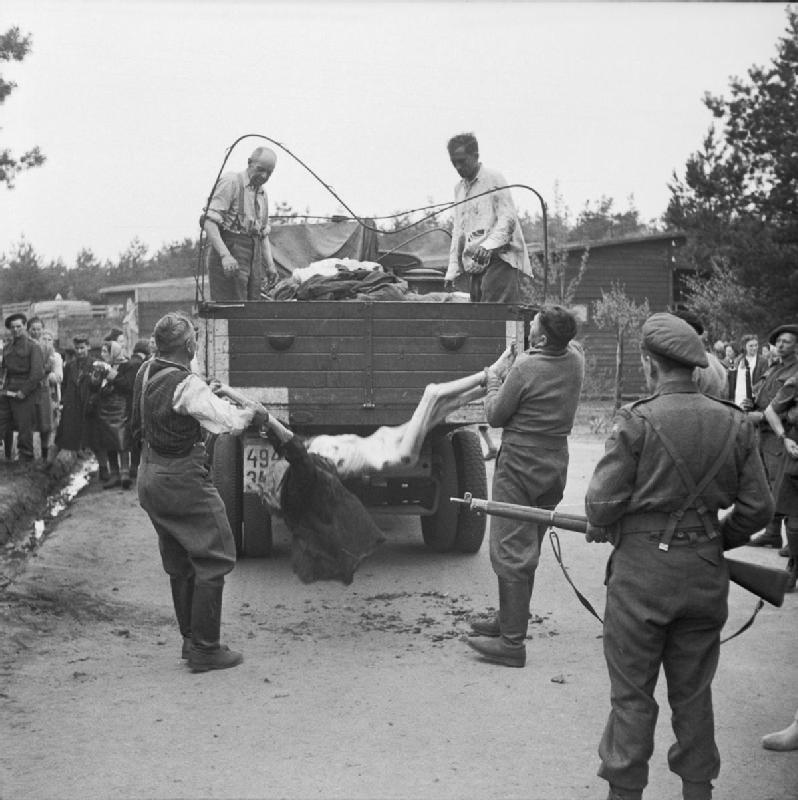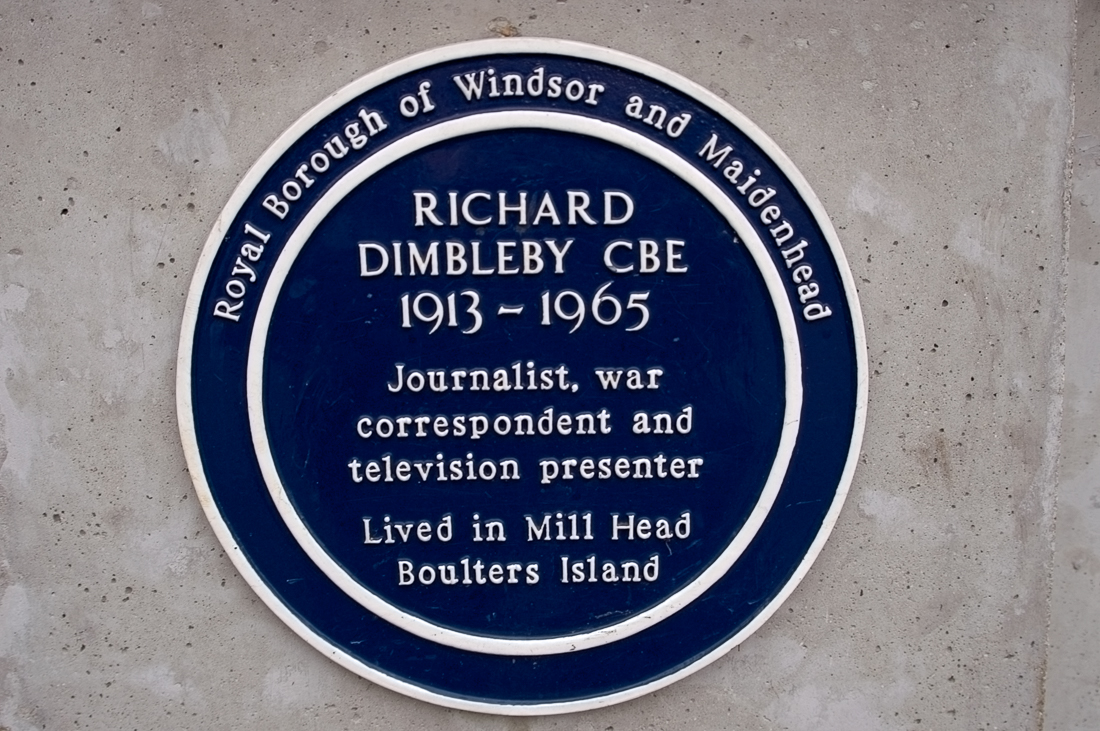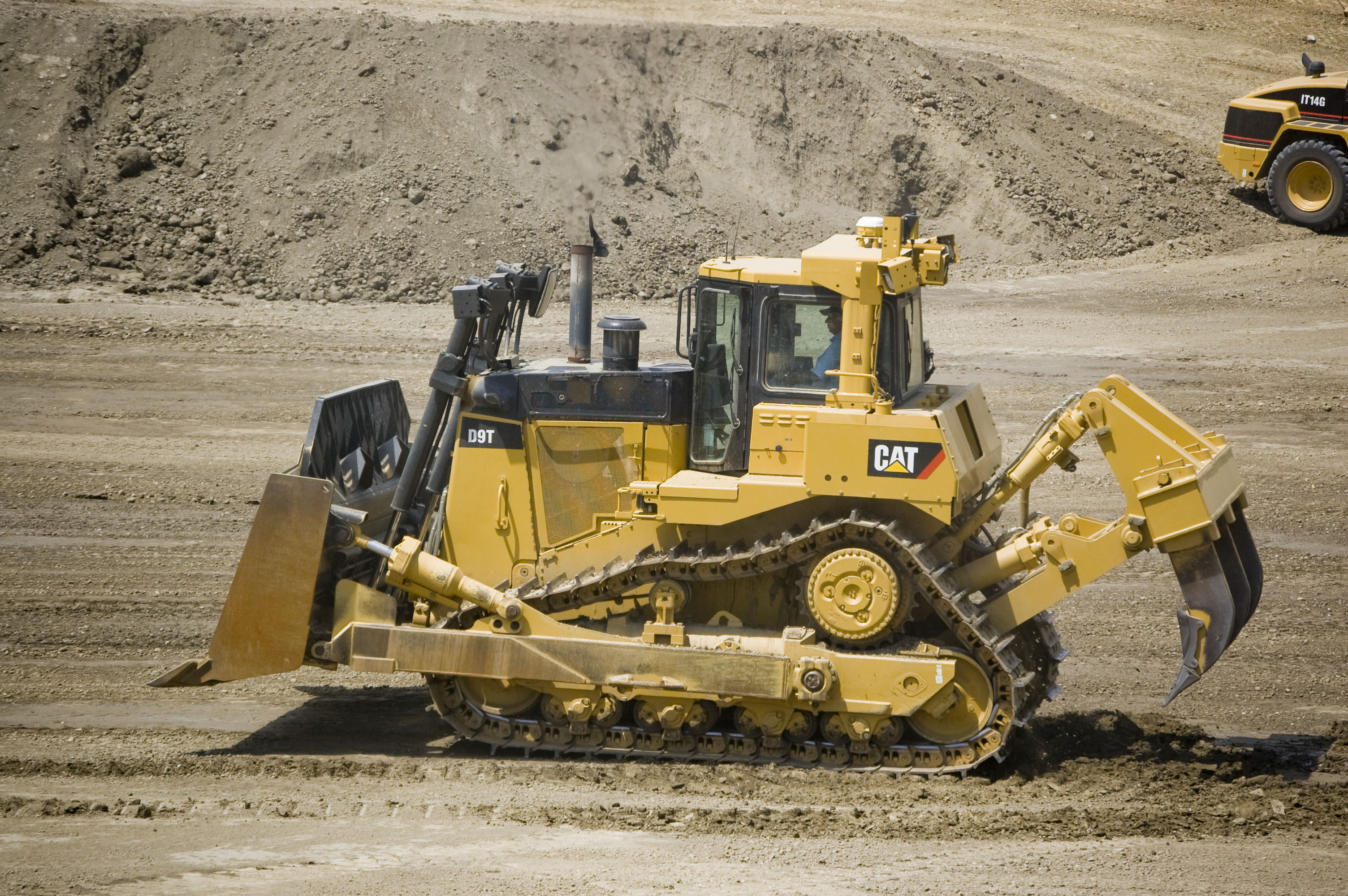|
Leslie Hardman
Reverend Leslie Henry Hardman MBE HCF (18 February 1913 – 7 October 2008) was an Orthodox Rabbi and the first Jewish British Army chaplain to enter Bergen-Belsen concentration camp, an experience "that made him a public figure, both within his community and outside it". Early life Hardman was born in Glynneath, Wales to a Polish father and Russian mother who were both Jewish. The couple lived in the Welsh valleys and worked as small business traders. While he was still young, the family moved to Liverpool where he attended the Hope Street Jewish School. Hardman attended a yeshivah and then the University of Leeds, where he took his BA and then an MA. He married his wife Josi (1911–2007) on 14 October 1936, two years after becoming minister of the Jewish community at St. Anne's, where he was also the shochet, or ritual slaughterer. From there he took a ministerial appointment in Leeds. Bergen-Belsen On the outbreak of the Second World War in September 1939, Hardman enlisted ... [...More Info...] [...Related Items...] OR: [Wikipedia] [Google] [Baidu] |
Member Of The Most Excellent Order Of The British Empire
The Most Excellent Order of the British Empire is a British order of chivalry, rewarding contributions to the arts and sciences, work with charitable and welfare organisations, and public service outside the civil service. It was established on 4 June 1917 by King George V and comprises five classes across both civil and military divisions, the most senior two of which make the recipient either a knight if male or dame if female. There is also the related British Empire Medal, whose recipients are affiliated with, but not members of, the order. Recommendations for appointments to the Order of the British Empire were originally made on the nomination of the United Kingdom, the self-governing Dominions of the Empire (later Commonwealth) and the Viceroy of India. Nominations continue today from Commonwealth countries that participate in recommending British honours. Most Commonwealth countries ceased recommendations for appointments to the Order of the British Empire when they cre ... [...More Info...] [...Related Items...] OR: [Wikipedia] [Google] [Baidu] |
Second World War
World War II or the Second World War, often abbreviated as WWII or WW2, was a world war that lasted from 1939 to 1945. It involved the vast majority of the world's countries—including all of the great powers—forming two opposing military alliances: the Allies and the Axis powers. World War II was a total war that directly involved more than 100 million personnel from more than 30 countries. The major participants in the war threw their entire economic, industrial, and scientific capabilities behind the war effort, blurring the distinction between civilian and military resources. Aircraft played a major role in the conflict, enabling the strategic bombing of population centres and deploying the only two nuclear weapons ever used in war. World War II was by far the deadliest conflict in human history; it resulted in 70 to 85 million fatalities, mostly among civilians. Tens of millions died due to genocides (including the Holocaust), starvation, ma ... [...More Info...] [...Related Items...] OR: [Wikipedia] [Google] [Baidu] |
Josef Kramer
Josef Kramer (10 November 1906 – 13 December 1945) was Hauptsturmführer and the Commandant of Auschwitz-Birkenau (from 8 May 1944 to 25 November 1944) and of the Bergen-Belsen concentration camp (from December 1944 to its liberation on 15 April 1945). Dubbed the Beast of Belsen by camp inmates, he was a German Nazi war criminal, directly responsible for the deaths of thousands of people. He was detained by the British Army after the Second World War, convicted of war crimes, and hanged on the gallows in the prison at Hamelin by British executioner Albert Pierrepoint. Early life Josef Kramer, an only child, was born and raised in Munich in a middle-class family. His parents, Theodore and Maria Kramer, brought him up as a "strict Roman Catholic". In 1915, the family moved from Munich to Augsburg, where Josef Kramer attended school. He began an apprenticeship as an electrician in 1920. From 1925 to 1933, except for working in a department store and as an accountant, he was mostl ... [...More Info...] [...Related Items...] OR: [Wikipedia] [Google] [Baidu] |
Circumcision
Circumcision is a surgical procedure, procedure that removes the foreskin from the human penis. In the most common form of the operation, the foreskin is extended with forceps, then a circumcision device may be placed, after which the foreskin is wikt:excise, excised. Topical or locally injected anesthesia is generally used to reduce pain and stress (physiology), physiologic stress. It is usually elective surgery, elective, performed as preventive healthcare, a Religious law, religious rite, or Culture, cultural practice. It is also an option for cases of phimosis, other Pathology, pathologies that do not resolve with other treatments, and chronic urinary tract infections (UTIs). The procedure is contraindicated in cases of certain genital structure abnormalities or poor general health. Circumcision is associated with reduced rates of sexually transmitted infections and urinary tract infections. This includes decreasing the incidence of Carcinogenesis, cancer-causing forms of ... [...More Info...] [...Related Items...] OR: [Wikipedia] [Google] [Baidu] |
Richard Dimbleby
Frederick Richard Dimbleby (25 May 1913 – 22 December 1965) was an English journalist and broadcaster, who became the BBC's first war correspondent, and then its leading TV news commentator. As host of the long-running current affairs programme ''Panorama'', he pioneered a popular style of interviewing that was respectful but searching. At formal public events, he could combine gravitas with creative insights based on extensive research. He was also able to maintain interest throughout the all-night election specials. The annual Richard Dimbleby Lecture was founded in his memory. Biography Early life Dimbleby was born near Richmond, Surrey, the son of Gwendoline Mabel (Bolwell) and Frederick Jabez George Dimbleby, a journalist. He was educated at The Mall School, Twickenham, and at Mill Hill School, and began his career in 1931 on the ''Richmond and Twickenham Times'', which his grandfather, Frederick William Dimbleby, had acquired in 1894. He then worked as a news r ... [...More Info...] [...Related Items...] OR: [Wikipedia] [Google] [Baidu] |
Dignified Death
Dignified death, death with dignity, dying with dignity or dignity in dying is an ethical concept that refers to the end-of-life process avoiding suffering and maintaining control and autonomy. In general, it is usually treated as an extension of the concept of dignified life, in which people retain their dignity and freedom until the end of their existence. Although a dignified death can be natural and without any type of assistance, the concept is frequently associated with the right to die, as well as with the defense of the legalization of practices such as voluntary euthanasia, physician-assisted suicide, terminal sedation or the refusal of medical assistance. According to its defenders, the possibility of this type of practices would be what would guarantee a dignified death, keeping free decisions until the last moment and avoiding an unnecessary agony. See also * Death with dignity (other) * Right to die * Assisted dying (other) Assisted dying, assiste ... [...More Info...] [...Related Items...] OR: [Wikipedia] [Google] [Baidu] |
Bulldozer
A bulldozer or dozer (also called a crawler) is a large, motorized machine equipped with a metal blade to the front for pushing material: soil, sand, snow, rubble, or rock during construction work. It travels most commonly on continuous tracks, though specialized models riding on large off-road tires are also produced. Its most popular accessory is a ripper, a large hook-like device mounted singly or in multiples in the rear to loosen dense materials. Bulldozers are used heavily in large and small scale construction, road building, minings and quarrying, on farms, in heavy industry factories, and in military applications in both peace and wartime. The word "bulldozer" refers only to a motorized unit fitted with a blade designed for pushing. The word is sometimes used inaccurately for other heavy equipment such as a front-end loader designed for carrying rather than pushing material. Description Typically, bulldozers are large and powerful tracked heavy equipment. T ... [...More Info...] [...Related Items...] OR: [Wikipedia] [Google] [Baidu] |
Kaddish
Kaddish or Qaddish or Qadish ( arc, קדיש "holy") is a hymn praising God that is recited during Jewish prayer services. The central theme of the Kaddish is the magnification and sanctification of God's name. In the liturgy, different versions of the Kaddish are functionally chanted or sung as separators of the different sections of the service. The term ''Kaddish'' is often used to refer specifically to "The Mourner's Kaddish," which is chanted as part of the mourning rituals in Judaism in all prayer services, as well as at funerals (other than at the gravesite; see Kaddish acher kevurah ''"Qaddish after Burial"'') and memorials; for 11 Hebrew months after the death of a parent; and in some communities for 30 days after the death of a spouse, sibling, or child. When mention is made of "saying Kaddish", this often refers to the rituals of mourning. Mourners recite Kaddish to show that despite the loss they still praise God. Along with the Shema Yisrael and the Amidah, the Ka ... [...More Info...] [...Related Items...] OR: [Wikipedia] [Google] [Baidu] |
Hugh Llewellyn Glyn Hughes
thumb Brigadier Hugh Llewellyn Glyn Hughes, (25 July 1892 – 24 November 1973) was a British military officer in the Royal Army Medical Corps and later medical administrator, educationalist and sports administrator. Hughes served in both the First and Second World War and is notable for his role in the care and rehabilitation of the victims of Bergen-Belsen concentration camp. Early history Hughes was born in Ventersburg, Orange Free State on 24 July 1892 and spent the first two years of his life in South Africa, after his father emigrated to take a medical post. When Hughes was two his father died from an infection caused by pricking his finger during an operation. Hughes and his mother returned to Britain, but at the age of seven Hughes was diagnosed with having curvature of the spine and at one time was confined to a spinal carriage. He was educated at Epsom College, and with his health issues behind him, threw himself into school life. After leaving school, like his father ... [...More Info...] [...Related Items...] OR: [Wikipedia] [Google] [Baidu] |
Bergen Belsen Liberation 03
Bergen (), historically Bjørgvin, is a city and municipality in Vestland county on the west coast of Norway. , its population is roughly 285,900. Bergen is the second-largest city in Norway. The municipality covers and is on the peninsula of Bergenshalvøyen. The city centre and northern neighbourhoods are on Byfjorden, 'the city fjord', and the city is surrounded by mountains; Bergen is known as the "city of seven mountains". Many of the extra-municipal suburbs are on islands. Bergen is the administrative centre of Vestland county. The city consists of eight boroughs: Arna, Bergenhus, Fana, Fyllingsdalen, Laksevåg, Ytrebygda, Årstad, and Åsane. Trading in Bergen may have started as early as the 1020s. According to tradition, the city was founded in 1070 by King Olav Kyrre and was named Bjørgvin, 'the green meadow among the mountains'. It served as Norway's capital in the 13th century, and from the end of the 13th century became a bureau city of the Hanseatic Leagu ... [...More Info...] [...Related Items...] OR: [Wikipedia] [Google] [Baidu] |







